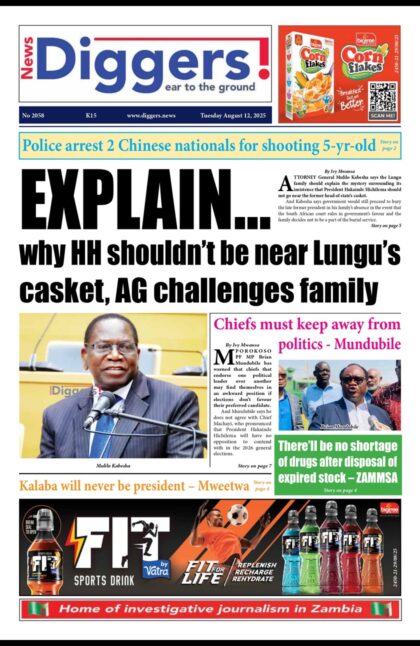FORMER Bank of Zambia (BoZ) governor Dr Denny Kalyalya says his appointment as the External Co-chair for the World Bank IDA20 is a good demonstration that education is a great equaliser.
In an interview , Dr Kalyalya described his appointment as the highest point in his career.
“This marks the highest point in my career. Looking back from where I started as a small village boy in Majoni Village, Monze, to being a key player in the global financial system, it is unbelievable. This to me is a clear demonstration of the powers of God Almighty and reinforces my fervent belief in Him! To Him, nothing is truly impossible. It is my sincere hope and wish that my appointment will inspire many young people and a good demonstration that education is a great equaliser. It is critically important in attaining one’s dreams,” Dr Kalyalya said.
“[I’m] greatly honoured! I thank God Almighty for making this possible. I also thank the colleagues who nominated me and those who encouraged me to take on this enormous assignment. I wish to express my profound gratitude to the selection panel, IDA Deputies, the Borrower Representatives, the World Bank Group Senior Management, the IDA Team, and the IDA Board for their confidence in my abilities. This is a very humbling assignment given the enormity of the task ahead. The sheer number of people affected by IDA is quite sobering; an estimated 1.7 billion in total, 1.1 billion of whom are in Sub-Saharan Africa.”
When asked what his appointment meant for the country, Dr Kalyalya said it was an opportunity for better networking on developmental matters.
“The previous two independent co-chairs came from West Africa and this time the opportunity has been accorded to Southern Africa, and Zambia has been fortunate enough to get the slot. So, it is a great honor for the country. Flowing from this is also the opportunity for better networking on developmental matters. It is important to first provide the context. IDA is a cooperative in which nearly all the countries of the world have membership (currently 173 members). This, of course, includes Zambia. However, its main funding source comes from donor countries that have converged every three years since its inception in 1960, to fund or replenish the financing envelope of IDA. Each round of replenishment negotiations is given a number, and the upcoming round will be the 20th, hence IDA20. IDA20 will run for three years, from July 2022, after which a new round of funding will be negotiated,” explained Dr Kalyalya.
“In the negotiations there are three main stakeholder groups, the World Bank, which administers the Fund, the donor countries, the primary providers of the funds (through grants and highly concessional loans), and IDA borrowing countries that make the case for support. Prior to IDA18, meetings were convened and chaired by the World Bank, with limited participation of borrower countries in the discussions. However, more recently, there has been a push for greater representation and voice of borrower countries, who are taking on a larger role in supporting IDA through loan repayments and are also host to all the operations that are undertaken. Therefore, more seats have been provided for borrower countries, while meetings are now co- chaired by a World Bank senior executive and an independent co-chair from one of the borrowing countries.”
In August last year, President Edgar Lungu fired Dr Kalyalya and replaced him with Christopher Mvunga.
























